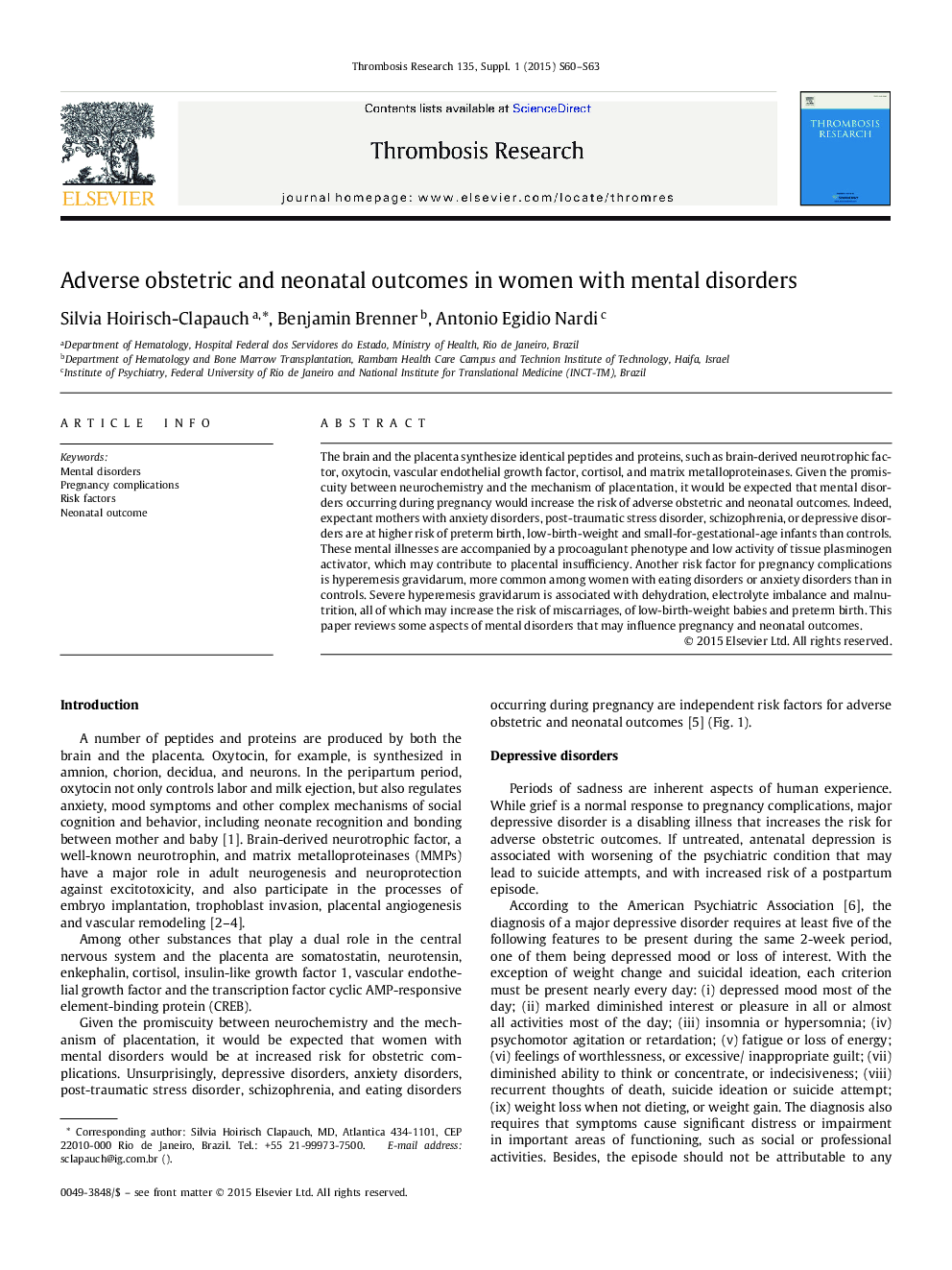| Article ID | Journal | Published Year | Pages | File Type |
|---|---|---|---|---|
| 3027406 | Thrombosis Research | 2015 | 4 Pages |
ABSTRACTThe brain and the placenta synthesize identical peptides and proteins, such as brain-derived neurotrophic factor, oxytocin, vascular endothelial growth factor, cortisol, and matrix metalloproteinases. Given the promiscuity between neurochemistry and the mechanism of placentation, it would be expected that mental disorders occurring during pregnancy would increase the risk of adverse obstetric and neonatal outcomes. Indeed, expectant mothers with anxiety disorders, post-traumatic stress disorder, schizophrenia, or depressive disorders are at higher risk of preterm birth, low-birth-weight and small-for-gestational-age infants than controls. These mental illnesses are accompanied by a procoagulant phenotype and low activity of tissue plasminogen activator, which may contribute to placental insufficiency. Another risk factor for pregnancy complications is hyperemesis gravidarum, more common among women with eating disorders or anxiety disorders than in controls. Severe hyperemesis gravidarum is associated with dehydration, electrolyte imbalance and malnutrition, all of which may increase the risk of miscarriages, of low-birth-weight babies and preterm birth. This paper reviews some aspects of mental disorders that may influence pregnancy and neonatal outcomes.
